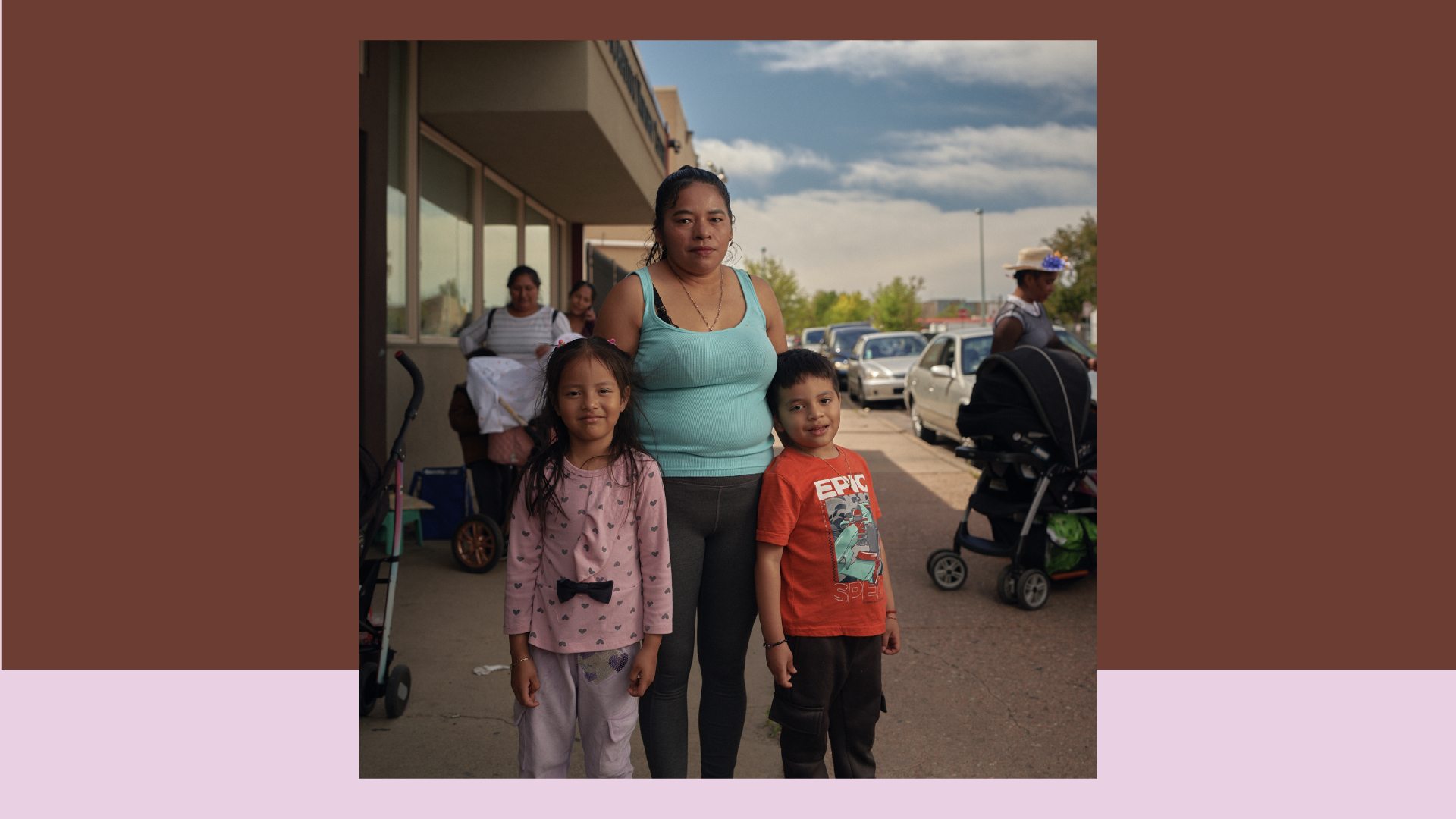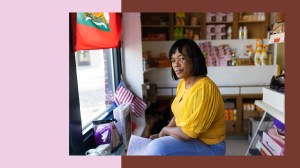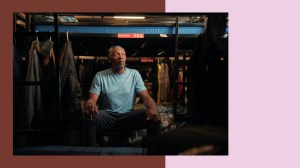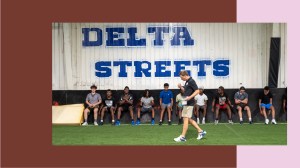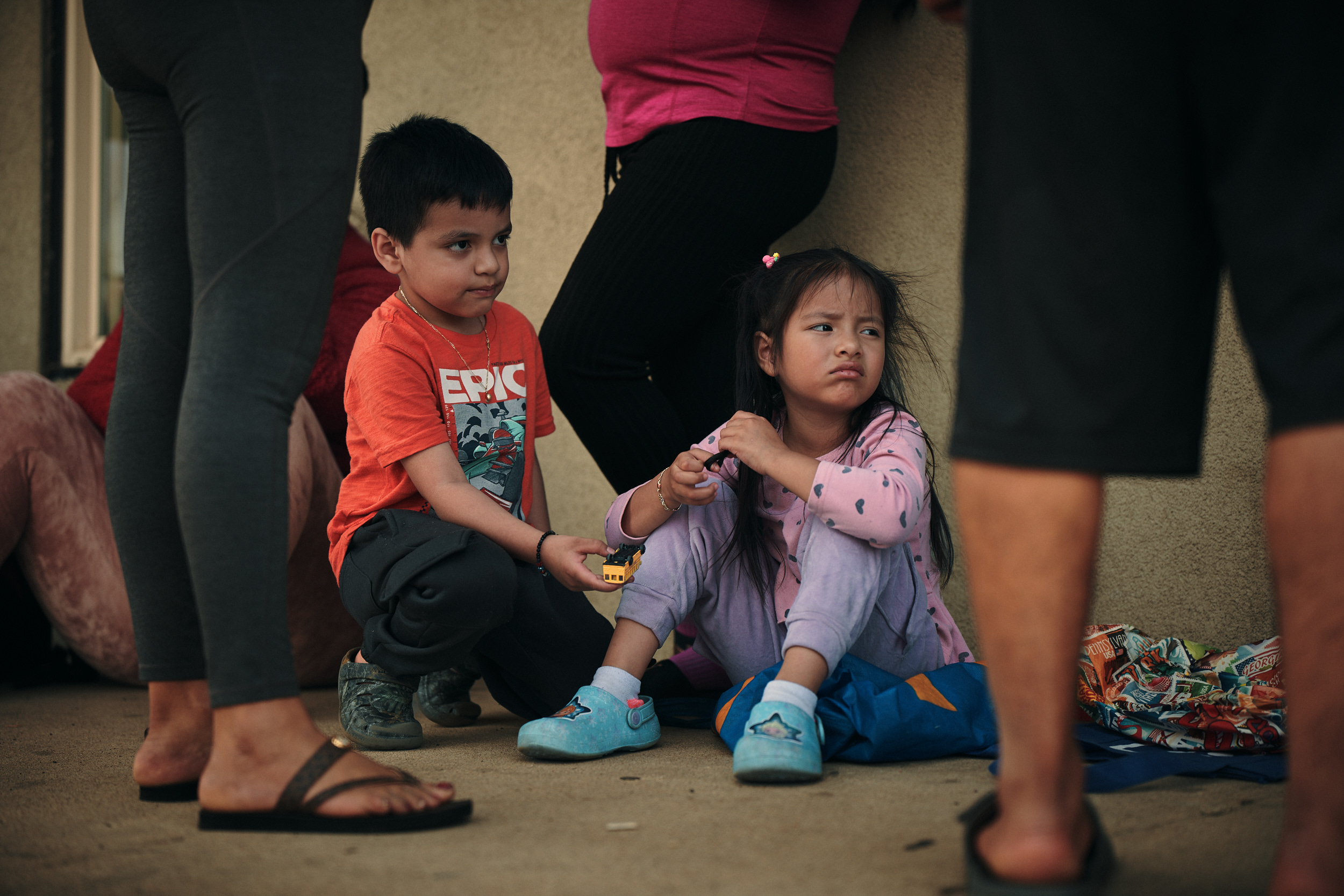In this series

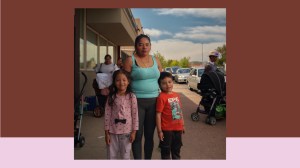
On a Monday evening, Ashley Leopold walked down the streets of Aurora, Colorado, calling young people to join the children’s ministry of Restoration Outreach Programs (ROP). “Are you coming?” she asked a young boy sitting by an open second-story window. “No, not today. I’ll go next week,” he responded.
Fifteen children from Southeast Asia, Africa, and Latin America were willing to gather at a picnic table in the courtyard of a four-story apartment building. With small whiteboards in their hands, they drew as Leopold’s husband, Zac, read a story about God’s message to Isaiah from the Jesus Storybook Bible. The kids taped eyes and ears to white balloons to make sheep that kept blowing away in the wind.
ROP has made progress among the refugee families living along the impoverished East Colfax corridor, which bridges Denver and Aurora. But this spring, none of the Venezuelan residents from one of the apartment buildings where the children’s ministry meets were willing to participate. “They’re fearful somebody’s gonna show up if we’re gathered in a group,” Leopold said.
The city’s Venezuelan population had been on high alert since August 2024, when armed men, allegedly members of the Venezuelan gang Tren de Aragua, broke into an apartment half a mile from ROP’s office. A video went of the attack went viral and grabbed the attention of then–presidential candidate Donald Trump. “You look at Aurora in Colorado,” Trump said. “[Venezuelan gangs] are taking over the towns. They’re taking over buildings. They’re going in violently.”
 Photography by Kris Cheng for Christianity Today
Photography by Kris Cheng for Christianity TodayAurora’s Republican mayor, Mike Coffman, called the claims “overstated” and “simply not true.” As president, Trump has deported thousands of Venezuelans, including women and children. In March, he sent three planes full of alleged Tren de Aragua members to a detention center in El Salvador. But many of them have no verified criminal records.
Since many Venezuelans are afraid to gather in public, ROP staff have fewer people coming to their door. The immigrants fear they’ll attract attention from ICE (US Immigration and Customs Enforcement). Yet Mary Tellis, ROP’s executive director, said she’s not giving up.
“They gonna have to put a lock on our door and take the brick and mortar,” she said. “We’re not going to go easy. … We are going to fight the good fight of faith here.”
East Colfax was once considered the city’s downtown. It began to decline in the 1960s after Interstate 70 opened three miles north, a nearby airport closed, and Aurora built a new city hall farther east. The area’s affordability led refugees and immigrants to settle there. Crime and homelessness increased: Between 2008 and 2022, Aurora’s crime rate rose 12 percent.
 Photography by Kris Cheng for Christianity Today
Photography by Kris Cheng for Christianity Today Photography by Kris Cheng for Christianity Today
Photography by Kris Cheng for Christianity Today Photography by Kris Cheng for Christianity Today
Photography by Kris Cheng for Christianity TodayA drive down East Colfax reveals both economic challenge and ethnic diversity: Top Pho next to Restaurante Antojitos Hondurenos; empty storefronts next to pawn shops with bars on their windows; a small food court selling cuisine from Myanmar, Syria, Nepal, and Ethiopia. The city’s many ethnicities are reflected within the Aurora school district, where students speak more than 160 languages.
Some see gentrification as the answer to turn around the East Colfax neighborhood. New upscale apartments now stand several blocks north of ROP’s building. The city of Aurora is drafting plans to revitalize business along East Colfax, yet many residents fear the change will raise the rent and force them to move out. ROP and other Christian ministries in the area worry the city is leaving behind the most vulnerable, so they meet with local officials and nonprofits to discuss ways to preserve the community.
Despite all the challenges, ROP sees God’s provision as it continues to serve the people who show up. In October 2022, the ministry saw a wave of Venezuelans arrive in the Denver area along with migrants from Central and South America, many bused from Texas. ROP’s food bank was running out of food. “It was so overwhelming that I would literally look out the window and begin to pray,” Tellis said.
Then, in what Tellis calls an answer to prayer, the Food Bank of the Rockies received a $450,000 grant that allowed it to give groups like ROP meat, dairy products, and produce for free. Since then, ROP’s food bank has stayed open.
Volunteers and staff at the ministry look for ways to infuse faith in all they do. Tracey Grant, head of the GED and work readiness program, said sometimes students she meets with individually arrive distraught over hardships in their lives. She pivots from her planned lesson to talk and pray with them. She teaches English to one student from Myanmar with the help of a parallel English- and Karen-language Bible.
Jim Bever, a volunteer ESL teacher, describes conversations he’s had with a student from China who wanted to know why a large print on the wall describes ROP’s mission as “meeting needs, building relationships, and restoring lives through Christ in the East Colfax community.”
On a sunny Tuesday morning, Tellis walks down the line of people waiting to get into the food bank, greeting regulars and families who have waited hours for the doors to open. “You ready to shop?” she asks a toddler clinging to his mom. “Ya’ll brought the sunshine!” she says as several women grin and laugh.
At the head of the line, a man from Venezuela says he has visited the food bank for the past year to supplement his income from cleaning a hotel. Walking along tables lined with bananas, avocados, spices, pico de gallo, and breakfast bars, he packs his bag with groceries.
In the dairy section, an 86-year-old woman named Teresa converses in Spanish with people coming down the line as she hands out yogurt and milk. Her daughter said she saw a change come over her mother after she started volunteering at the food bank.
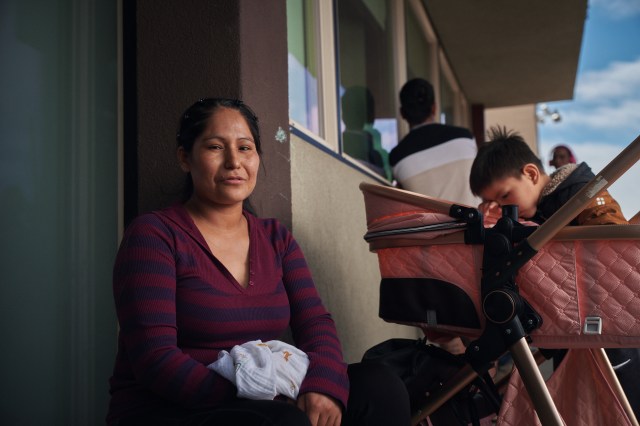 Photography by Kris Cheng for Christianity Today
Photography by Kris Cheng for Christianity TodayTeresa, who once owned a store in Venezuela, came to Aurora a year ago and felt isolated at home as her children went off to work. She doesn’t speak English. When a relative invited her to volunteer at the food bank, she agreed. She began to feel like part of the community. Teresa is Catholic, and her daughter said she appreciates that the volunteers start each day with prayer.
“She really loves it because she is … helping people,” her daughter shared. “This changed her life.”
Most Tuesdays, Doug Ford, the pastor of Restoration Worship Center, stands near the exit of the food bank with a sign offering prayer. It’s written in three languages.
Even though Ford speaks only English, many approach him. He asks God to guide their families and give them favor in the situations they face. And he prays that they will have a relationship with Jesus.
Angela Lu Fulton is the Asia editor for Christianity Today.

